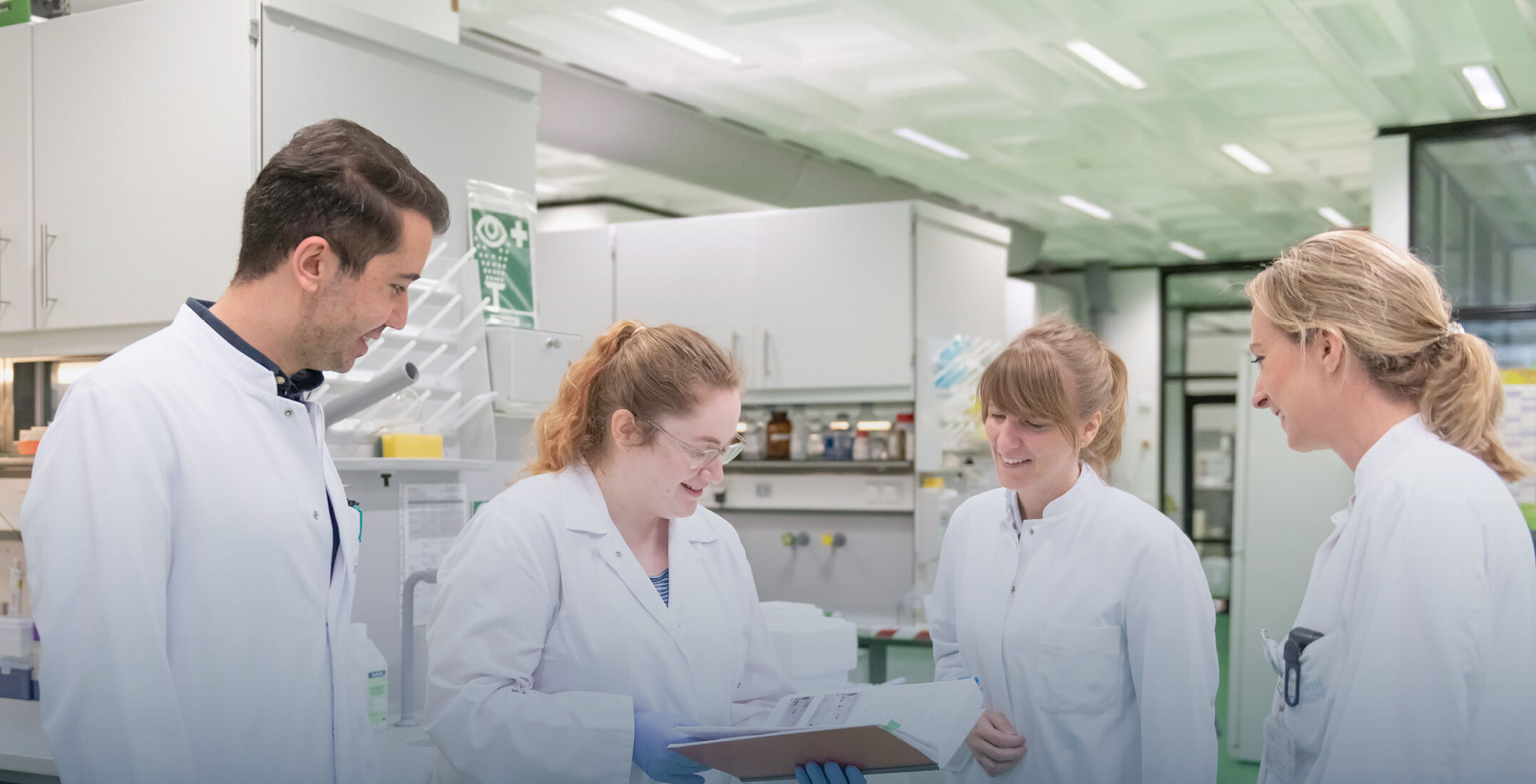We are proud to share that we have contributed to the long journey of turning research discoveries into tangible benefits for patients. Following our 2021 discovery—demonstrated in an animal model of myelofibrosis—that treatment with tasquinimod can reduce bone marrow fibrosis (Leimkühler and Gleitz et al.), we initiated efforts to translate these findings from bench to bedside. This work has now culminated in a clinical trial “TasqForce”, launched in collaboration with the legal sponsor HOVON and recruited its first patient in the beginning of 2025. The study is lead by Martina Crysandt in Aachen and Peter te Boekhorst in the Netherlands. Read more about the trial below.
The HOVON 172 TasQforce trial is a single-arm, multi-center, open-label study designed to assess the safety and efficacy of tasquinimod in this patient population with high unmet medical need. The Phase I segment will determine dose-limiting toxicity during the initial 28 days of treatment, followed by the Phase II portion focusing on efficacy. The primary efficacy endpoint is the proportion of patients achieving at least a 35% reduction in spleen volume after six 4-week cycles of tasquinimod. Secondary endpoints include changes in bone marrow fibrosis, myelofibrosis-related symptoms, variant allele frequency, and overall survival.
The trial is being conducted within the Stichting Haemato-Oncologie Volwassenen Nederland (HOVON) network of study centers in the Netherlands and Germany, with HOVON serving as the legal sponsor. Active Biotech holds a global patent license agreement with Oncode Institute for tasquinimod in myelofibrosis since February 2022, with Oncode Institute providing primary financial support for the study.
Tasquinimod is an orally active small molecule immunomodulator with a novel mode of action, targeting tumor-supporting pathways in the bone marrow microenvironment. It is being developed as a potential new treatment for hematological malignancies, including myelofibrosis. Preclinical studies have demonstrated its therapeutic potential in models of multiple myeloma and myelofibrosis. Tasquinimod has previously been studied in patients with solid cancers, including a Phase III trial in metastatic prostate cancer, and has a well-characterized tolerability profile.
Myelofibrosis is a rare blood cancer characterized by the replacement of healthy bone marrow with scar tissue, leading to abnormal blood cell production. Patients often experience anemia, changes in white blood cell counts, spleen enlargement, and an increased risk of infections. Current treatment options are limited, and there are no approved therapies that reverse bone marrow fibrosis in myelofibrosis.
For more information on the HOVON 172 TasQforce study, please refer to clinicaltrials.gov (NCT06605586) and the HOVON website (www.hovon.nl).






